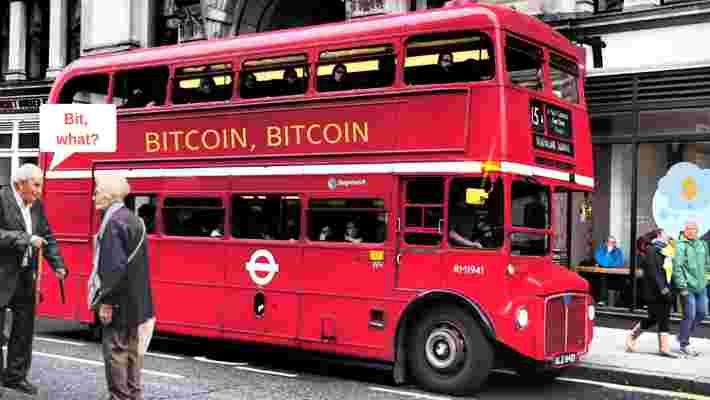Facebook’s digital currency Libra is looking less and less likely to launch next year as originally planned .

Policy expert, Angela Walch from University College London’s Centre for Blockchain Technologies told Quartz : “The odds that Libra receives regulatory approval anytime soon (ie, in the next six-12 months) are quite low.”
“This is such a massive proposal, with immediate global scale and consequences,” she added.
Indeed, over the last few weeks Libra has come under much scrutiny and is now looking like it’s been dragged through a hedge backwards.
Last week, Facebook‘s head of Calibra, David Marcus, was given a grilling by US Senators over the social media giant’s plans for its digital currency. While some senators claim to see the potential of blockchain technology, Marcus was largely subjected to a barrage of burns and reasons why people shouldn’t trust Facebook .
As it happens, the word trust was mentioned 69 times – that’s an average of every two minutes.
A few days after the US Senate hearings, politicians from the UK began to speak out against the big F’s “cryptocurrency” plans.
India, potentially one of Libra’s biggest markets, told Facebook to talk to the hand after it denounced the project before the tech giant even tried to launch it in the country.
If all that wasn’t enough, it seems the public isn’t keen on it either.
According to a poll conducted by CivicScience , which looked into general interest and public concerns surrounding Libra, only five percent of 1,799 US adults surveyed expressed any level of interest in the proposed digital currency.
Facebook is also fighting a growing list of fake Libra websites , g roups, and accounts that claim to already be selling the digital token even though it’s yet to launch.
The social network is clearly facing an uphill battle when it to comes earning the trust of potential Libra users, and authorities from around the globe.
I’m not a betting man, (and neither should you be), but if I wanted to make some money out of Libra (which I don’t, and neither should you), I’d probably put a bet on it not launching on time, assuming it ever does.*
*This is not investment advice. Do not gamble, ever. You will not win, probably.
UK financial watchdog finally decides which cryptocurrencies it wants to regulate
The Financial Conduct Authority ( FCA ), the regulatory body tasked with overseeing the country’s financial markets , has clarified its stance on crypto assets, stating which tokens it’s responsible for.

Today’s policy statement is a response to a consultation paper published by the FCA in January, which prompted 92 responses from several financial services entities, including cryptocurrency exchanges, trade associations, and banks . Most responses supported its original proposals, the regulator said.
“Following our consultation, we are proceeding with the g uidance that was consulted on, with some drafting changes to improve clarity based on responses. This includes reframing our taxonomy of cryptoassets to help market participants better understand whether tokens are regulated, and where they fall outside our remit,” the report reads.
The FCA ’s latest policy provides several important clarifications and definitions.
For example, cryptocurrencies such as Bitcoin and Ethereum, which the FCA considers to be “ exchange tokens,” are not regulated, but will adhere to anti-money-laundering regulations .
Additionally, the statement says “ security tokens,” which fall under the FCA ’s “specified investment” category will fall under the watchdog’s remit.
In stark contrast, utility tokens will fall outside the FCA ’s control, except for when they can be defined as electronic money and fall with a new category of e-money tokens.
Some stablecoins can also be defined as e-money and as such may also be subject to the FCA ’s control.
“This is a small, complex, and evolving market covering a broad range of activities . Today’s guidance will help clarify which cryptoasset activities fall inside our regulatory perimeter,” Christopher Woolard, the FCA ‘s executive director of strategy and competition, said in a statement.
Earlier this month, the FCA proposed a ban on some cryptocurrency -related investment products in a bid to protect retail investors .
A statement at the time said that cryptocurrency -based derivatives and exchange – traded notes (ETNs) were “ill-suited to retail consumers who cannot reliably assess the value and risks.”
Dutch central bank tested blockchain for 3 years. The results? ‘Not that positive’
The Dutch central bank developed and evaluated four distributed ledger technology (DLT) prototypes in three years, but so far blockchain hasn’t lived up to the hype, The Banker reports .

In fact, the only use-case it can easily envision is cross-border payments, after it discovered that markets with efficient payment systems that exist (such as Nordic countries and the Netherlands) don’t really benefit from blockchain.
The bank said limitations of DLT include inefficiency caused by high energy consumption, lack of full certainty that payments are completed, and capacity shortages.
“We started with baby steps, understanding the Bitcoin software and mining in a centralized versus decentralized way. Then we built prototypes and tested whether DLT networks could benefit parts of our market infrastructure while still providing the functionality needed in payments,” said Petra Hielkema, director of payments and market infrastructures at De Nederlandsche Bank (DNB).
Hielkema touted tokenization of assets as one developing use-case, as well as “certain activities” using smart contracts.
Still, Hielkema advised central banks around the world to experiment with and invest in emerging tech like blockchain and artificial intelligence. “We do think this technology is promising but more innovation is needed,” she added.
Did you know? Hard Fork has its own stage at TNW2019 , our tech conference in Amsterdam. Check it out .











